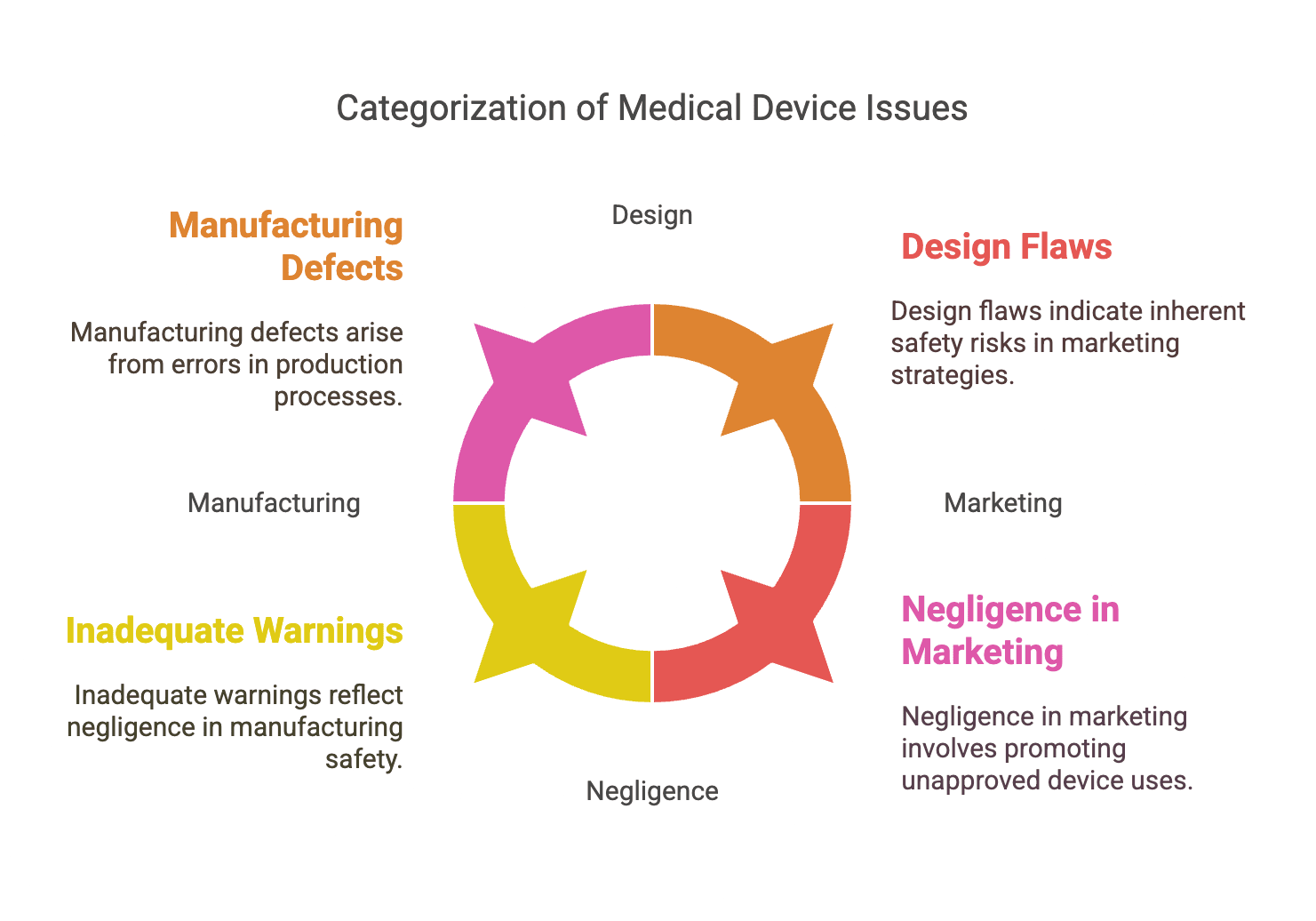While the U.S. healthcare system has produced positive outcomes for many patients, it is not immune to errors, oversights or even negligence. These failures can cause significant injuries that can put lives at risk.
When medical treatments or products cause harm, lawsuits are an essential tool for fighting back. Victims and their loved ones can take legal action to hold corporations and providers accountable. These types of lawsuits can also drive systemic changes that can protect future patients from harm.
Below, we explore how lawsuits can positively impact healthcare policy and patient safety.
Common Reasons Why Patients File Medical Device Lawsuits
Medical device lawsuits are often filed by patients who have suffered injuries or complications due to defective or unsafe devices. These cases typically arise from several key issues related to the manufacturing, design or marketing of the devices, including:
- Manufacturing Defects: Errors during production can cause devices to fail or cause harm to patients.
- Design Flaws: Poorly designed devices may pose inherent safety risks, even when used correctly.
- Inadequate Warnings or Instructions: Insufficient guidance on risks or proper usage can result in injuries or complications. This type of allegation is made in Depo-Provera shot lawsuits.
- Improper Testing: Devices that are not thoroughly tested before release may have unforeseen malfunctions or side effects.
- Negligence in Marketing: Promoting unapproved or off-label uses of medical devices can cause significant harm.
- Complications from Implantable Devices: Some devices that are used for a long time, such as pacemakers or joint replacements, may fail and require revision surgery or other treatments.
Patients file these lawsuits to recover damages for medical costs, lost income and emotional distress.
The Role of Medical Lawsuits in the Healthcare System
Medical lawsuits arise when patients suffer harm due to negligence, defective products or insufficient warnings about risks.
For example, Depo-Provera, a popular injectable contraceptive, has been the subject of numerous lawsuits due to an increased risk of brain tumors.
These are just a few of the potential benefits of taking healthcare providers or healthcare corporations to court:
1. Holding Manufacturers and Providers Accountable
Lawsuits can force pharmaceutical companies, medical device manufacturers and healthcare providers to take responsibility for their actions. Even if these entities do not admit liability, they can be forced to pay compensation.
For example, lawsuits against the makers of Depo-Provera have shed light on serious health risks, such as bone density loss and mental health issues. The lawsuits allege the manufacturers did not adequately warn patients about the risks.
2. Incentivizing Better Research and Development
Lawsuits can also provide an incentive for corporations to invest in better research and testing. Legal consequences encourage companies to thoroughly study potential side effects and long-term risks before releasing more products to the market. These extra precautions may help make medical treatments safer for consumers.
3. Highlighting Gaps in Regulation
Medical lawsuits often expose deficiencies in the way prescription drugs, and medical devices are regulated. For instance, defective drug or medical device lawsuits can reveal shortcomings in the FDA approval process. This scrutiny might spur stricter oversight or tighter regulations that could benefit future patients.
4. Setting Precedents for Future Cases
The outcomes of these lawsuits may set legal precedents that can influence future cases. These rulings often lead to policy changes within pharmaceutical companies and encourage the development of safer products.
The Benefits of Class Action Lawsuits
Class action lawsuits play a vital role in holding manufacturers accountable while offering significant benefits to individuals harmed by defective prescription drugs or medical devices. These collective legal actions allow multiple plaintiffs with similar claims to band together and seek justice against large corporations, which might otherwise be financially and legally intimidating to pursue individually.
These are some of the benefits of class action lawsuits:
Efficiency
Instead of thousands of individual lawsuits clogging the court system, a class action consolidates claims into a single case, saving time and resources for both plaintiffs and the judicial system. This streamlined approach often leads to quicker resolutions and ensures that all affected individuals receive compensation rather than only those who file independently.
Accountability
Class actions also help ensure accountability. When manufacturers face widespread legal action, it brings greater attention to systemic issues with their products. Successful cases often result in recalls, stricter testing protocols, or better safety warnings, which can prevent future harm to patients.
Leveling the Playing Field
Additionally, class actions level the playing field for individuals who may lack the financial resources to take on powerful corporations. Legal fees and expenses are typically shared among the group, reducing the burden on individual plaintiffs. This makes justice more accessible to those who might otherwise suffer in silence.
While lawsuits can be challenging for the individuals involved, their broader impact on healthcare policies and practices cannot be overstated. By shining a light on negligence and advocating for transparency, medical lawsuits ensure a safer, more accountable healthcare system for all.



































